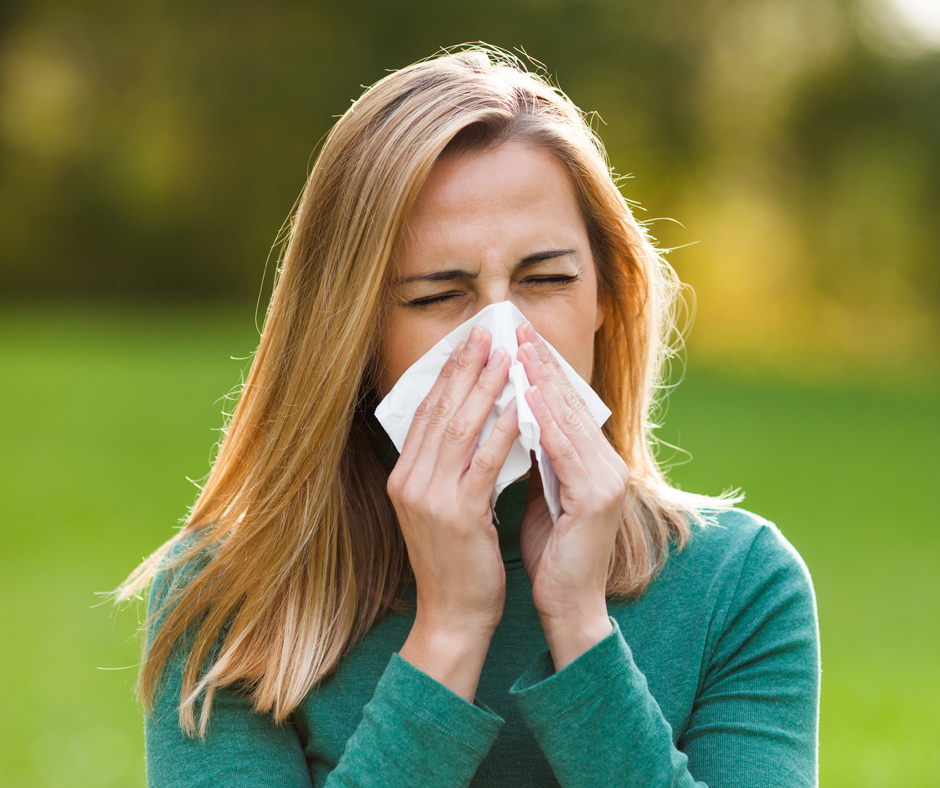We know avoiding your triggers is the best way to stop suffering with allergy symptoms. We also know it’s not always realistic or even possible to avoid your allergens completely. How do you stay away from grass?
That’s where allergy treatment comes in. There are a variety of medications and treatment methods designed to reduce allergy symptoms and train your immune system to tolerate certain substances. For those with chronic allergies, treatment provides a path to real relief from that sneezing, itching, stuffy allergy feeling.
Here’s what you need to know.
Allergy Testing
The first step in allergy treatment is undergoing an allergy test. Allergy tests are performed by trained allergy specialists (allergists) to identify the types of allergens that may be causing your symptoms. This can be done by a skin test or a blood test.
Skin prick tests are the most common exam used to identify potential allergens. They are easy to perform and effective at identifying common sources of food-borne, environmental, and contact allergies. During testing, your doctor will use a special tool to lightly prick your skin with various potential allergens (typically between 10 and 50) and closely monitor your body’s response. If you are allergic to an allergen used in testing, reactions such as redness, swelling, and itchiness will occur at the site within 15 minutes.
If you are unable to undergo a skin test or your allergies are severe, your allergist may suggest a blood test. This involves sending a sample of your blood to a lab, which tests it for IgE antibodies that indicate an allergic response.
Medications
Medications that relieve symptoms are generally the first line of allergy treatment. Mild allergies usually respond well to over-the-counter medications that can be purchased at your local pharmacy. More severe symptoms may require a prescription medication to control.
There are various types of allergy medications that are safe and effective. These include:
- Antihistamines block histamine, the chemical responsible for most allergy symptoms. They are available in liquids, tablets, nasal sprays, creams, and eye drops.
- Decongestants reduce nasal congestion by shrinking swollen membranes in the nose. They are only recommended for short-term treatment (no more than 3 consecutive days) because they are known to cause rebound reactions.
- Nasal Corticosteroids are nose sprays that reduce inflammation and swelling. They are effective at treating runny, stuffy, and itchy noses.
- Epinephrine treats life-threatening anaphylaxis in those with severe allergic reactions. It is a special injector that must be used within minutes of allergy symptoms.
Allergy Immunotherapy
Immunotherapy may be an option for patients with persistent or severe allergies that do not respond to medication. There are two types of allergy immunotherapy: shots and sublingual drops.
Allergy shots involve receiving regular injections of a known allergen in increasing doses over time. This allows the body to build a tolerance to the substance, reducing its overreaction. Allergy shots are given one to three times per week in a doctor’s office for several years.
Sublingual immunotherapy (SLIT) also builds progressive immunity but does not require painful shots. Instead, allergens are introduced to the body as drops or tablets under the tongue that can be taken daily at home. Sublingual drops are safe and effective, delivering real results to some patients in as little as three months.

